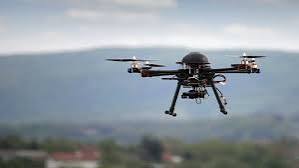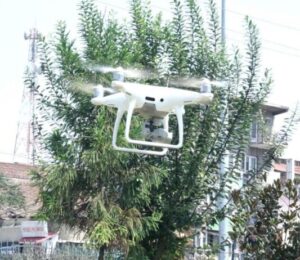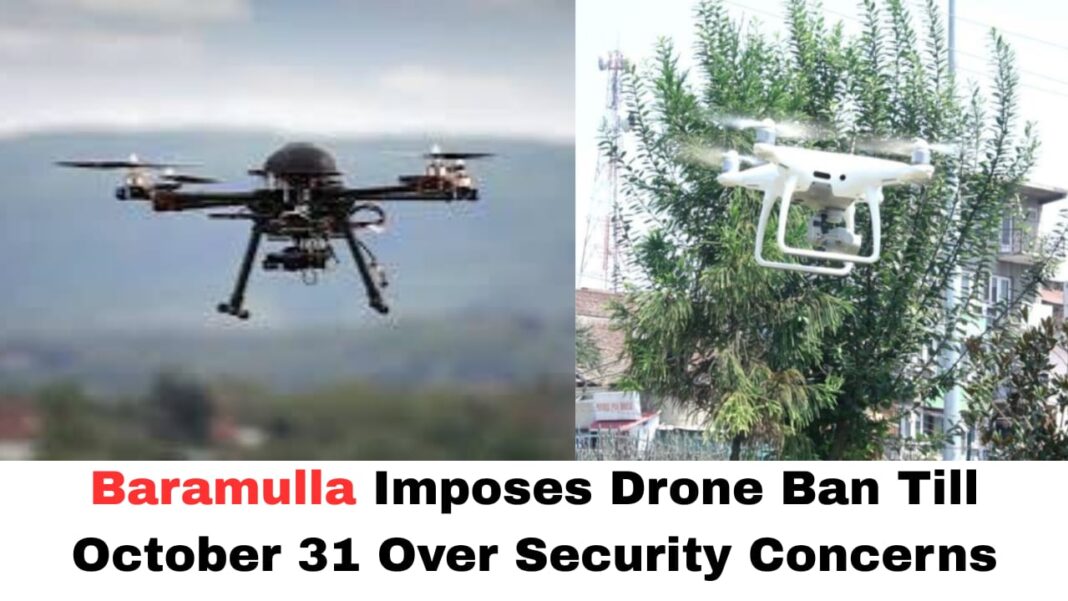Digital News Guru Jammu & Kashmir Desk:
Baramulla Imposes Drone Ban Until October End Amid Security Concerns
Baramulla district in north Kashmir has imposed a complete ban on flying drones (UAVs) until October 31, 2025, citing intelligence inputs warning of potential misuse during the upcoming festive season. The order, issued by District Magistrate Minga Sherpa (IAS), uses the powers granted under Section 163 of the Bharatiya Nagarik Suraksha Sanhita (BNSS), 2023.
What the Order Says
The official directive (Order No. 59-DMB (PS) 2025 dated October 13, 2025) prohibits the flying of drones by any individual, event host, or organization within Baramulla district until the end of October.

However, there are exemptions:
- Security Forces, Central Armed Police Forces (CAPF), or any government department may use drones for official purposes provided they give prior intimation to the District Administration, Police, and the HQ 19 Infantry Division.
- Violation of the ban will attract legal consequences under the relevant laws. The District Magistrate has tasked Executive Magistrates and district police to enforce the ban “in letter and spirit.”
Why the Ban: Security Rationale
The ban follows an alert from the HQ 19 Infantry Division, which had communicated on September 24, 2025, with intelligence suggesting that drones could be used for smuggling or as tools to target security forces and vital installations.
Additional inputs came from the Senior Superintendent of Police (SSP) Baramulla and SSP Sopore, who recommended restricting non-essential drone or UAV operations as a precautionary measure.
The concern is particularly heightened because of the festive season, a time when increased mobility, gatherings, and potentially relaxed vigilance can provide cover for misuse. Authorities are evidently acting to mitigate risk before any incident.
Legal Backdrop: Section 163 of BNSS
The order is issued under Section 163 of the Bharatiya Nagarik Suraksha Sanhita (BNSS), 2023, a legal framework for citizen security. Under BNSS, authorities can impose preventive measures to ensure safety and public order.
This provision has been used in Baramulla earlier for restrictions in various circumstances — for public gatherings, processions, and as a preventive measure in regions susceptible to unrest.
Implications & Effects
For civilians and drone users
- All non-official drone flights are suspended. Hobbyists, media, content creators, event organisers who might have planned to use drones must either cancel or seek alternate arrangements.
- There is an expectation that people owning drones or UAVs will comply strictly. Even transport, sale or possession, if they fall under “non-official purpose,” could come under scrutiny. While the order speaks explicitly about flying, related operations might also be closely watched.
For security forces & government departments
- The exemptions ensure that critical surveillance, reconnaissance and security tasks that require drone usage are not hampered — but only if proper prior notice is given.
- This helps maintain preparedness without completely shutting down aerial monitoring capabilities which are often vital in sensitive zones.

For law enforcement & administration
- Implementation will be the responsibility of district police, executive magistrates, and the district administration. Legal consequences may follow for violators.
- Checking compliance may involve monitoring drone movements, screening events that may deploy drones, inspecting shops selling drones or related gear, and publicly announcing the ban so people are aware.
Broader Context: Drone Use & Security in Kashmir
Baramulla is part of a region that has seen recurring tensions related to drone usage, especially across the Line of Control (LoC) or International Border. In several past incidents, drones were reportedly used for smuggling of arms, infiltration attempts, or even as delivery mechanisms for contraband.
The region’s topography, with its porous borders and challenging terrain, has made drone regulation a security priority. Locals have in past reported sightings of suspicious drone activity. Authorities in Kashmir have periodically suspended permissions for civilian drones or imposed bans, particularly during heightened alert periods.
Potential Challenges & Criticisms
While authorities justify the ban on security grounds, several possible issues arise:
- Economic impact: People who depend on drone services — photography, media, tourism documentation — may lose work or incur losses.
- Enforcement difficulties: Policing drone usage is inherently challenging — detecting small drones, tracking who is flying them, especially in remote or hard-to-reach areas.
- Overreach vs. civil liberties: Critics may argue that blanket bans affect legitimate users and curtail freedom unless oversight and transparency are maintained.
- Clarity & communication: To avoid unintended violations, communication of the order must be clear. Civilian drone‐owners need to be aware of ban’s scope, time frame, and exemptions.

Comparison with Similar Measures
The recent order in Baramulla is not unprecedented. Similar bans or suspensions have been imposed in other districts of Jammu & Kashmir at times of heightened tension. For example:
- In the past, Baramulla had suspended all permissions for civilian drone operations to tighten security.
- Rajouri and other border districts have also had orders restricting storage, sale, possession, and transport of drones under security laws.
Hence, this action fits a pattern: whenever there is credible intelligence of risk, especially around festive seasons or geopolitical tension, local administrations are swift to deploy legal tools under BNSS or similar acts.
Conclusion
The Baramulla drone ban reflects a security apparatus being proactive: using the legal framework (BNSS Section 163) to mitigate threats foreseen by intelligence agencies. While the measure may inconvenience legitimate users, authorities expect that the benefits — in terms of preventing misuse of unmanned aerial technology, securing vital installations, and avoiding potential smuggling or attacks — justify the restrictions, especially given the seasonal spike in risk. How effectively the ban is implemented, and whether authorities strike the right balance between security and civil agency, will determine its success and acceptability among the populace.
You May Also Read: Google Commits $10 Billion to Andhra Pradesh: Building “AI City Vizag”








